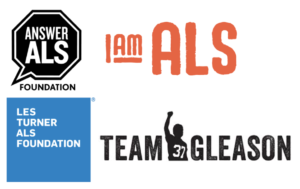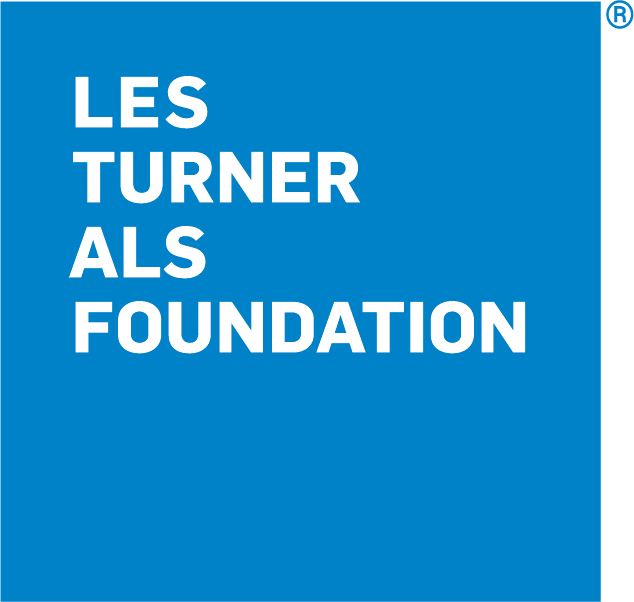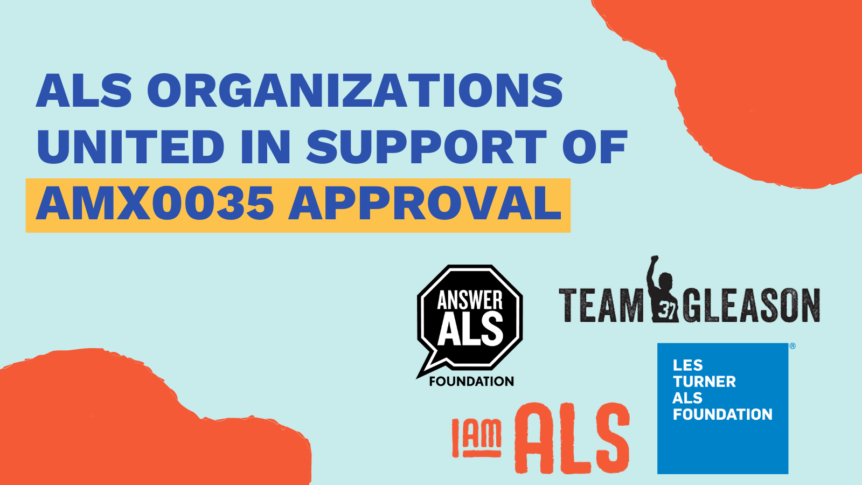Submitted for FDA Advisory Committee hearing on September 7, 2022
Amyotrophic lateral sclerosis (ALS) is a horrific, neurodegenerative disease. At terrifying speed, ALS robs people of the ability to move, speak, eat, and breathe. It kills so quickly that people with ALS typically live for just two to three years after diagnosis. There is no cure.
At this moment, over 30,000 Americans are living with ALS. But many, many more are affected by the disease. They are family members who have become full-time caregivers, and they are partners, children, and grandchildren who must watch as someone they love is stripped of the ability to embrace them, attend a graduation or a wedding, or even rise from bed. They will carry the loss – the acute awareness of the moments that were taken from them – for the rest of their lives.
Our organizations support people living with ALS through the entire progression of the disease. We support their families, too, in grief and bereavement. While ALS affects people of all ages, from all walks of life, every one of them, without exception, shares this wish:
More time.
The FDA is currently reviewing a drug, AMX0035, that could help grant that wish. The unmet medical need is enormous, the benefit is significant, and the case for approval is clear.
AMX0035 is safe and effective. In a large, placebo-controlled study conducted at 25 of the top ALS clinics in the world, AMX0035 was found to be safe and effective for people living with ALS, with minimal side effects. It met its primary endpoint – an endpoint specifically highlighted for use in the FDA’s own drug development guidance document. And more promising results continue to emerge from the data, such as reduced risk of first hospitalization.
AMX0035 has shown the ability to extend survival by 10 to 18 months. On average, people live 24 to 36 months after an ALS diagnosis. Adding 10-18 more months to their lives would be an extraordinary, almost unfathomable gift to people with ALS and their loved ones.
AMX0035 has shown the ability to slow decline in function by as much as 25 percent. ALS is swift and ruthless in its progression. From diagnosis, much of a person’s remaining time is spent in a state of increasing paralysis. With access to this therapeutic, people with ALS may be able to remain independent for longer. They can spend more time sharing trips, meals, and the moments that give meaning to life with the people who mean the most to them.
Questions posed at the previous Advisory Committee meeting have been answered, and ALS experts assert their support for approval. This Annals of Neurology editorial by two leading ALS clinician-scientists directly addresses and resolves key points of question. Since then, several dozen clinicians around the country have signed a letter stating that they want AMX0035 approved so they can prescribe it to their patients.
The FDA has the regulatory authority and flexibility to act. Approval would be in keeping with its own guidelines. In 2019, the FDA released ALS guidance for industry that notes the “FDA has long stressed the appropriateness of exercising regulatory flexibility in applying the statutory standards to drugs for serious diseases with unmet medical needs, while preserving appropriate assurance of safety and effectiveness.”
The severity of ALS is beyond question – as is the unmet need for approved treatment options. Without action, the ALS community will lose 20,000 more people over the next three years. Waiting years longer would deny the 30,000+ Americans living with ALS today – and the tens of thousands who are yet to be diagnosed – access to a drug that could extend their lives by 10 months or more. We cannot take that precious time away from them or their families.
We urge the FDA advisory committee to recommend full approval of AMX0035. The need is urgent and the time to act is now.
Answer ALS Foundation
I AM ALS
Les Turner ALS Foundation
Team Gleason



